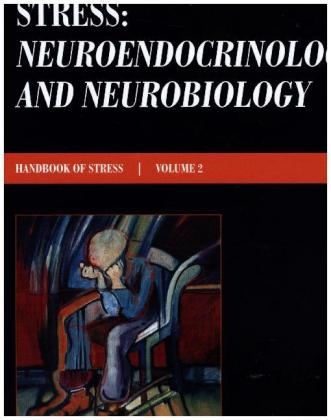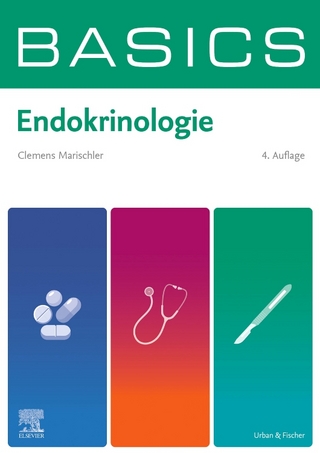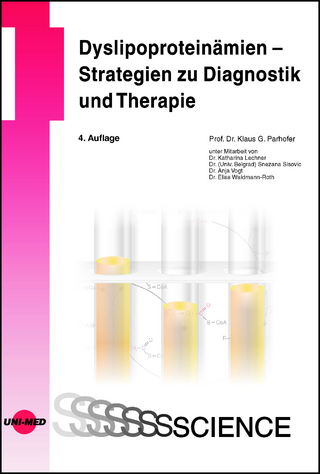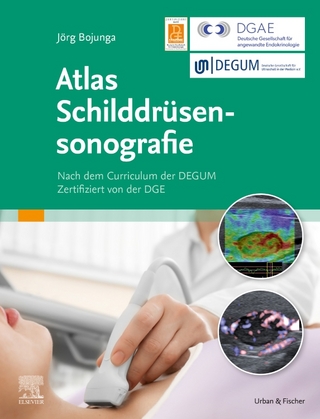
Stress: Neuroendocrinology and Neurobiology
Academic Press Inc (Verlag)
978-0-12-802175-0 (ISBN)
The book features the topic of epigenetics, and how it enables stress and other external factors to affect genetic transmission and expression without changes in DNA sequence. Integrated closely with new behavioral findings and relevance to human disorders, the concepts and data in this volume offer the reader cutting-edge information on the neuroendocrinology of stress.
Volume 2 is of prime interest to neuroscientists, clinicians, researchers, academics, and graduate students in neuroendocrinology, neuroscience, biomedicine, endocrinology, psychology, psychiatry, and in some areas of the social sciences, including stress and its management in the workplace.
Dr. Fink is Honorary Professor in the University of Melbourne and Professorial Research Fellow at the Florey Institute of Neuroscience and Mental Health. Formerly, he was Scientific Director of the Mental Health Research Institute, Melbourne, Australia. Before returning to Melbourne in 2003, Dr. Fink was University Lecturer in Human Anatomy and Fellow in Physiology and Medicine at Brasenose College and the University of Oxford and served for nearly 20 years as CEO and Director of the UK Medical Research Council’s Brain Metabolism Unit in Edinburgh. He gained distinction through his seminal research discoveries in neuroendocrinology and psychopharmacology published in over 360 scientific papers. Dr. Fink served as President of the European Neuroendocrine Association. His distinctions include Fellow of the Royal Society of Edinburgh, Fellow of the Royal College of Physicians of Edinburgh, Fellow of the Royal Biological Society, Fellow of the Physiological Society, and Honorary Member of the British Society for Neuroendocrinology. Fink was Honorary Professor in the University of Edinburgh, delivered the inaugural Geoffrey Harris Prize Lecture of the British Physiological Society, and the Wolfson Lecture. In 1979 he was awarded the Royal Society - Israel Academy Exchange Fellowship which enabled him to spend a research year at the Weizmann Institute of Science, Rehovot Israel. In 2000 he was awarded the Lifetime Achievement Award of the International Society of Psychoneuroendocrinology. His membership of learned societies includes Emeritus member of the Society for Neuroscience, the Endocrine Society and the Genetics Society of America. Dr. Fink has edited several scientific books with Elsevier, including Stress Science: Neuroendocrinology (2009), Stress Consequences: Mental, Neuropsychological and Socioeconomic (2009), Stress of War, Conflict and Disaster (2010), the Handbook of Neuroendocrinology (2011), and most notably the 4-volume second edition of the Encyclopedia of Stress (2007) on which this new Handbook of Stress series is based. He was founding Editor-in-Chief of the first edition of the Encyclopedia of Stress (2000) which was awarded the 2001 British Medical Association commendation for its contribution to Mental Health. The first volume of his Handbook of Stress series, entitled “Stress: Concepts, Cognition, Emotion, and Behavior, received the BMA High Commendation in the Health and Social Care category as one of the top titles in its discipline.
Part I. Neuroendocrine Control of the Stress Response 1. Stress Neuroendocrinology: Highlights and Controversies 2. Limbic Forebrain Modulation of Neuroendocrine Responses to Emotional Stress 3. Adrenergic Neurons in the CNS 4. Noradrenergic Control of Arousal and Stress 5. Evolution and Phylogeny of the Corticotropin-Releasing Factor Family of Peptides 6. Corticotropin-Releasing Factor and Urocortin Receptors 7. Tracking the Coupling of External Signals to Intracellular Programs Controlling Peptide Synthesis and Release in Hypothalamic Neuroendocrine Neurons 8. Neural Circuitry of Stress, Fear, and Anxiety: Focus on Extended Amygdala Corticotropin-Releasing Factor Systems 9. Vasopressin as a Stress Hormone 10. Adrenocorticotropic Hormone 11. The Role of MicroRNAs in Stress-Induced Psychopathologies 12. Stress Reactions Orchestrate Parasympathetic Functioning and Inflammation Under Diverse Cholinergic Manipulations 13. Early Life Stress- and Sex-Dependent Effects on Hippocampal Neurogenesis 14. Stress, Alcohol and Epigenetic Transmission 15. Stress, Panic, and Central Serotonergic Inhibition 16. Neuroendocrinology of Posttraumatic Stress Disorder: Focus on the HPA Axis 17. Stress and Major Depression: Neuroendocrine and Biopsychosocial Mechanisms 18. Telomeres and Early Life Stress
Part II. Endocrine Systems and Mechanisms in Stress Control 19. Stress, Glucocorticoids, and Brain Development in Rodent Models 20. Aging and Adrenocortical Factors 21. Aldosterone and Mineralocorticoid Receptors 22. Androgen Action and Stress 23. Angiotensin—Encyclopedia of Stress 24. Stress, Angiotensin, and Cognate Receptors 25. Annexin A1 26. Corticotropin-Releasing Factor Receptor Antagonists 27. Antidepressant Actions on Glucocorticoid Receptors 28. Lipids and Lipoproteins 29. Corticosteroid Receptors 30. Glucocorticoid Receptor: Genetics and Epigenetics in Veterans With PTSD 31. Stress Effects on Learning and Memory in Humans 32. Sex Differences in Chronic Stress: Role of Estradiol in Cognitive Resilience 33. Rapid and Slow Effects of Corticosteroid Hormones on Hippocampal Activity 34. 11ß-Hydroxysteroid Dehydrogenases 35. Stress, Insulin Resistance, and Type 2 Diabetes 36. Steroid Hydroxylases 37. Manipulating the Brain Corticosteroid Receptor Balance: Focus on Ligands and Modulators 38. Stress and the Central Circadian Clock 39. Nongenomic Effects of Glucocorticoids: Translation From Physiology to Clinic
Part III. Diurnal, Seasonal, and Ultradian Systems 40. Circadian Rhythm Effects on Cardiovascular and Other Stress-Related Events 41. Seasonal Variation in Stress Responses 42. Seasonal Rhythms 43. Ultradian Rhythms
| Erscheinungsdatum | 20.01.2017 |
|---|---|
| Verlagsort | San Diego |
| Sprache | englisch |
| Maße | 216 x 276 mm |
| Gewicht | 1470 g |
| Themenwelt | Medizinische Fachgebiete ► Innere Medizin ► Endokrinologie |
| Naturwissenschaften ► Biologie ► Humanbiologie | |
| Naturwissenschaften ► Biologie ► Zoologie | |
| ISBN-10 | 0-12-802175-6 / 0128021756 |
| ISBN-13 | 978-0-12-802175-0 / 9780128021750 |
| Zustand | Neuware |
| Haben Sie eine Frage zum Produkt? |
aus dem Bereich


